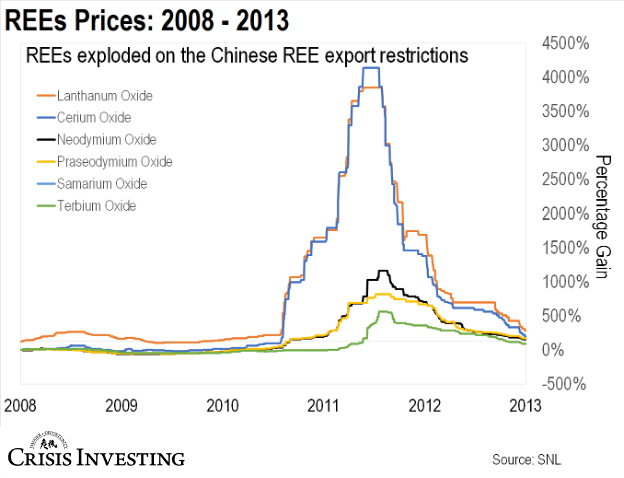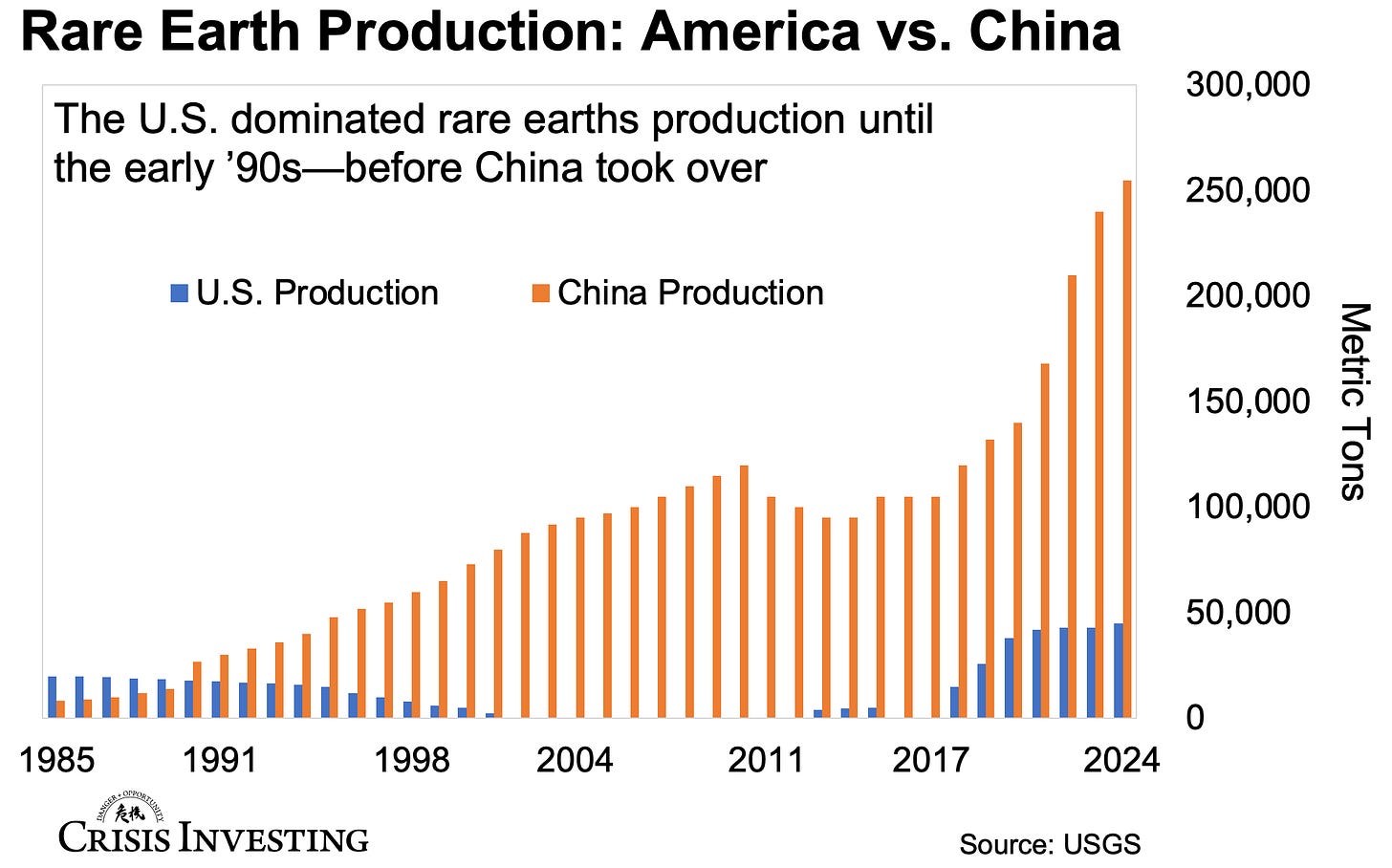U.S.–China Tensions Are Heating Up—And Here’s How We’ll Profit
'Crisis Investing' Issue 5 / May 2025 – Vol 2
Dear Reader,
We've got a particularly exciting issue for you this month. Not only do we have a compelling new recommendation, but we're also dealing with a great "problem"—several of our positions have doubled recently.
I'll keep this brief since we're covering a lot of ground this month.
Hope you enjoy it—and happy investing.
Lau Vegys
Rare Earths Are Getting Interesting Again
It was September 7, 2010, in the East China Sea.
Captain Zhan Qixiong was having a routine day—until everything went sideways. His Chinese fishing trawler, the Minjinyu 5179, was working the waters near the disputed Senkaku Islands when it collided with not one, but two Japanese Coast Guard patrol boats.
The Japanese arrested Captain Zhan. Beijing demanded his immediate release. Tokyo refused.
What started as a minor maritime incident quickly spiraled into a full-blown diplomatic crisis.
China didn’t hold back. It retaliated by cutting off all rare earth exports to Japan—and slashing global exports by 40%.
That was a major blow. Japan depended on Chinese rare earths for key inputs in everything from computers and smartphones to flat-screen TVs and hybrid cars.
The result? One of the biggest rare earth element (REE) price booms in history. Average prices across the group jumped more than 2,100%. Take a look at the chart below.
Some rare earths shot up even higher—Lanthanum and Cerium skyrocketed by 4,141% and 2,978% between 2010 and 2011.
How America Lost the Lead
China only managed to impose its 2010 rare earths embargo on Japan because it dominated both the production and processing of these critical minerals at the time.
Former Chinese leader Deng Xiaoping is said to have once remarked, “The Middle East has oil. China has rare earths.” He wasn’t wrong.
Today, China continues to produce and process nearly 70% of the world’s rare earth supply, as shown in the chart below.
This wasn't always the case. In fact, go several decades back and it was not China that dominated global rare earths production. It was the good ol' USA.
Take a look at the next graph. In the 1980s and early ’90s, the U.S. was a major rare earths producer. Then production collapsed. That’s also when China’s took off.
So, what happened?




